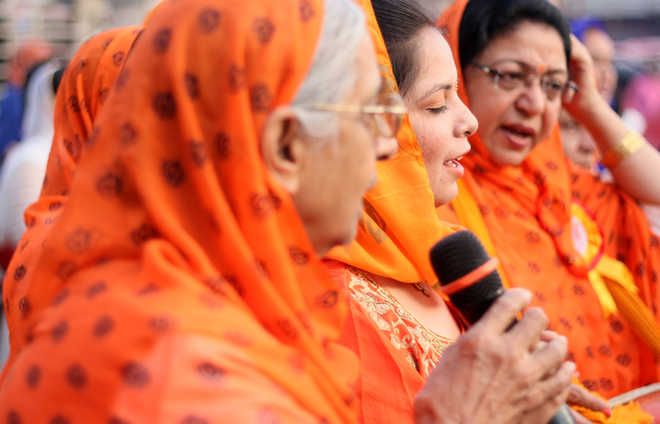Gurbani reflects his educational philosophy
Upinder Swahney
Guru Nanak’s writings do not explicitly mention his thoughts on education, but there is a lot which implicitly brings out his philosophy on education. Many aspects of modern education are a part of his writings, including the application of scientific temper in one’s routine life and his views on the status of women in society.
In his hymn Vidya vichari tan parupkari, Nanak emphasised that if you desire to acquire true knowledge, make people’s welfare your aim in life. He encouraged the setting up of schools, attached to every religious place, to educate children. He defied the belief that women were inferior or weaker than men. Pained by the low status accorded to women in society, he said: “So kyun manda aakhiye jit jamme rajaan” (Why look down upon women who give birth to men, including the kings).
Stress on scientific temper
The modern-day emphasis of education on the development of scientific temper was visible in his preaching and writings. Scientific temper is a way of life. It is an attitude which involves the application of logic. Elements of fairness, equality and democracy are built upon it. Guru Nanak’s observations regarding wearing a sacred thread, janeyu, sending water to one’s forefathers and several other rituals, his emphasis on discussion, argument and analysis are vital parts of scientific temper. He was in favour of logical reasoning and against blind following. He emphasised that the role of education was to impart wisdom, which brings clarity of thought.
Travelling and learning
Travelling was an essential part of Guru Nanak’s life. His long travels, known as udasis, also point towards the present day focus of education on travelling and learning. Education, according to Guru Nanak’s philosophy, is not gathering information but attaining self-realisation and becoming conscious about the societal ills like dishonesty, greed, corruption, discrimination on the basis of gender, caste, religion, etc. He emphasised that discussions and arguments in educational sphere were worthless if the deeper meaning of life was not understood. Thus, for Guru Nanak, mere book learning was not education.
Guru Nanak distinguished between an educated and enlightened person and the one who’s merely literate. For an educated person, knowledge does not end at memory or understanding but is embodied in his behaviour and character. According to him, sach tan par janiye janridhe sacha hoye, i.e., truth is higher than everything but higher still is truthful living and a pure heart.
Guru Nanak’s thoughts suggest that the aim of education was the harmonious development of personality, to draw the best from body and mind. He emphasised that education is for self-realisation and physical, intellectual, emotional, social, moral and spiritual development of a human being. Guru Nanak’s Gurbani (hymns) reflect his educational philosophy, which is the development of scientific outlook, artistic vision, creative attitude, moral and spiritual strength and realisation of truth.
To conclude, Guru Nanak considers education as a source of illumination and power. It transforms the nature of a human being by the progressive development of his physical, intellectual and spiritual powers. According to Guru Nanak, education prepares a person for complete living, and he clearly emphasised that one did not have to denounce the worldly desires and pleasures in order to attain enlightenment. Living a normal human life with honesty and compassion is the application of education and knowledge.
— The writer is coordinator UGC-SAP, Dept of Economics, Panjab University









